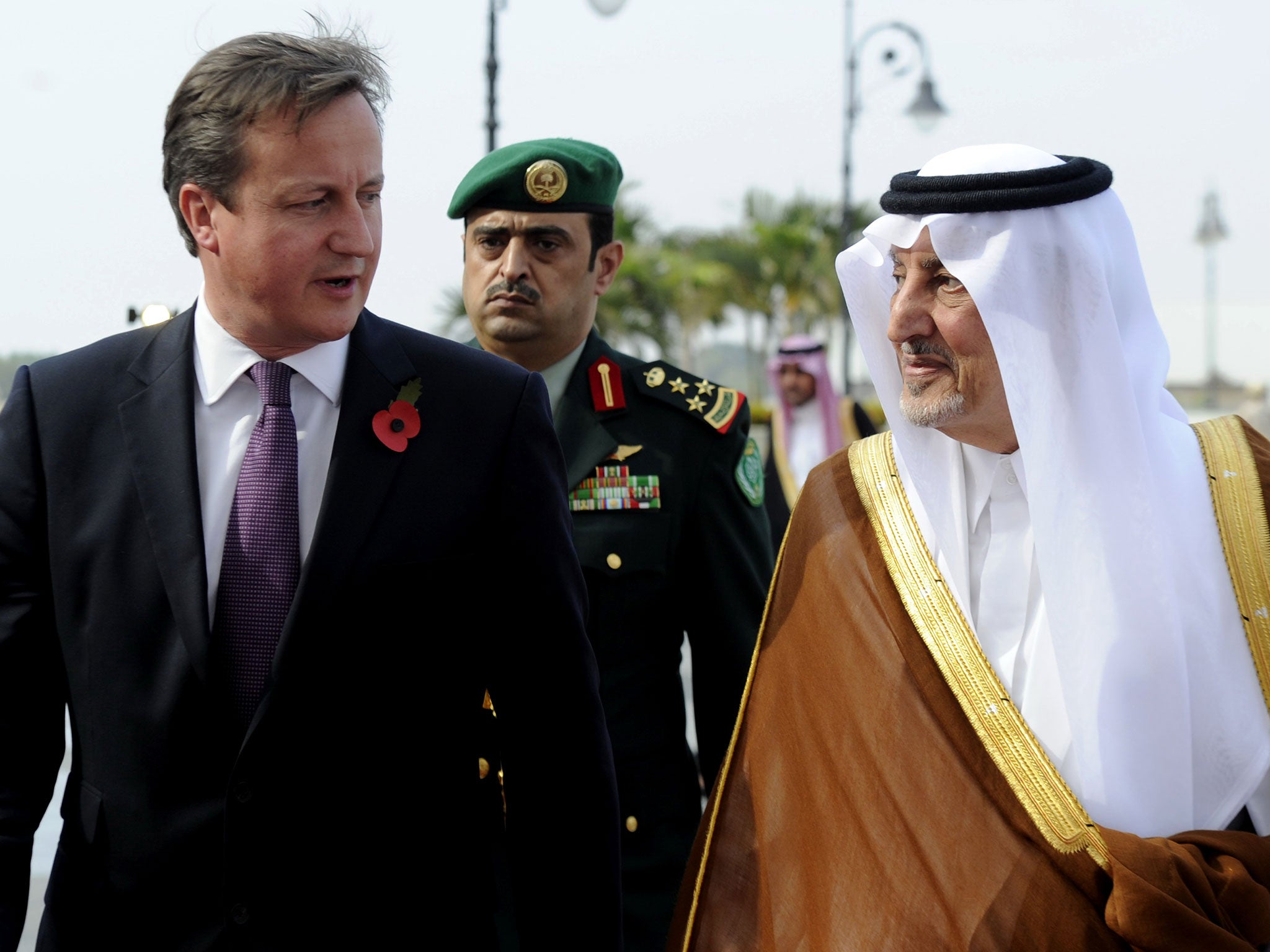Germany is reconsidering its relationship with Saudi arms dealers - so why can't we?
It’s time to hit them where it hurts: their wallets


The name Nimr al-Nimr may not have meant a lot to people in the UK, but his execution and the diplomatic fallout between Saudi Arabia and Iran has been hard to ignore.
Al-Nimr was one of 47 people killed by the Saudi authorities as part of a mass execution designed to project strength, inflame tensions and send a clear signal to the world that there will be no change in the Kingdom in 2016.
The response from Saudis international allies has been meek to say the least. The USA 'raised concerns' and nothing more, similarly the European Union warned of 'dangerous consequences' but expressed little condemnation of the executions themselves.
With 47 beheaded and the breakdown of the ceasefire in Yemen, which Saudi has been bombing since March last year, now is not a time for voicing half-hearted concerns. It’s time to hit them where it hurts: their wallets.
The first country to talk about altering the way it does business with the Saudis was Germany. Yesterday Sigmar Gabriel, the Economy Minister, said that Germany will review its arms sales to the Kingdom. This followed the decision of German intelligence services to go on record in accusing the Saudi authorities of 'destabilising' the Arab World' last month.
In contrast, when David Cameron finally broke his silence it was only to underline his opposition to the death penalty rather than to criticise the Saudi government itself.
Nothing was said of the £5.6 billion worth of arms that the UK has licensed to Saudi Arabia since he took office. Nor did he mention the recent allegations of war crimes or the scores of UK fighter jets and bombs that have been so central to the humanitarian catastrophe in Yemen.
Of course the issue goes beyond David Cameron. UK governments of all colours have built a uniquely close military relationship with the Saudis.
The last time the UK considered its relationship was in 2004, when the Serious Fraud office began looking into corruption relating to arms sales to the regime. The investigation threatened to unearth a litany of embarrassing details, but, after a concerted lobbying effort, including interventions by Tony Blair and the Attorney General, it was dropped.
This pattern of trading political favours and arms deals has only continued.
Over recent months it has been alleged that the UK lobbied behind the scenes to secure Saudi Arabia's painfully ironic election to the UN Human Rights Council. Furthermore, the Independent has revealed that Saudi was the only major death penalty state to be omitted from the UK's anti death penalty strategy.
If governments such as the UK really believe that human rights are universal then they must use their influence to oppose brutality and oppression wherever it takes place, whether it’s carried out by violent death cults like ISIS or autocracies like Saudi Arabia.
If Germany's review results in any meaningful change then it will set an important precedent and apply much needed pressure on the wider international community to act.
Last year the Swedish Foreign Minister tore up its memorandum of understanding with Saudi, citing the barbaric treatment of blogger Raif Badawi, who was sentenced to 1000 lashes and ten years in prison, as her reason for doing so. Unfortunately her words were short lived and the arms sales resumed only a few months later.
Ultimately it is the Saudi authorities that are to blame for the mass executions and the other appalling abuses it carries out, but they are aided, fuelled and facilitated by countries such as the UK.
The current policy of selective silence only legitimises the oppression taking place. It empowers the regime and sends a sign to those on the coalface of oppression that their human rights are negotiable and that their lives are of less concern than arms company profits.
Andrew Smith is a spokesperson for Campaign Against Arms Trade (CAAT)
Join our commenting forum
Join thought-provoking conversations, follow other Independent readers and see their replies
Comments